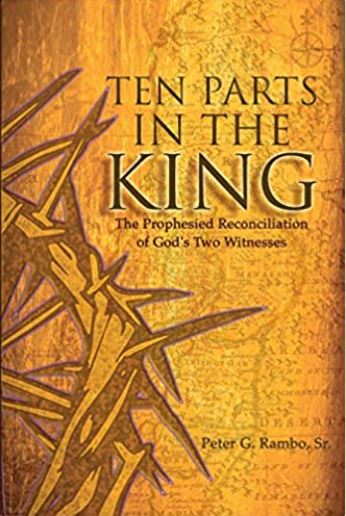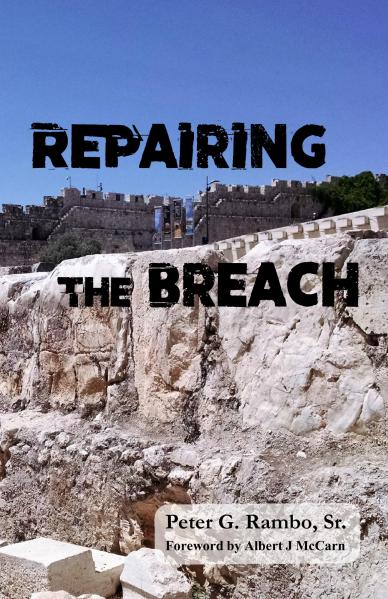My bride and I were watching a video by Zach Bauer the other day and he displayed and read this passage:
Now the works of the flesh are manifest, which are these; Adultery, fornication, uncleanness, lasciviousness, [20] Idolatry, witchcraft, hatred, variance, emulations, wrath, strife, seditions, heresies, [21] Envyings, murders, drunkenness, revellings, and such like: of the which I tell you before, as I have also told you in time past, that they which do such things shall not inherit the kingdom of God. (Bold, mine)
Galatians 5:19-21 KJV

Suddenly my wife Sarah noticed the third item in this list. “It says
uncleanness right there!” she exclaimed. I looked again and replayed
that portion of the video and said, “you’re right and where is that
defined?” The next day, I was talking to Peter and he said, “that sounds
like a good blog post. If you don’t write it I will.” So here it goes.
I started by looking up the verse at blueletterbible.org in the KJV and clicking ‘tools’ next to verse 19 revealing the Greek words and the Strongs number. The word ‘uncleanness’ is translated from ἀκαθαρσία G167 which I then cross referenced with the LXX (Septuagint Greek translation of the Tanakh) and can you guess what I found? The same word is used over 150 times in various forms throughout the Tanakh. It links back to Strongs numbers H2930 and H2931.
One of the glaringly obvious passages to jump to is Lev. 11. Ἀκαθαρσία (akatharsia) is the same word used for the unclean animals that are defined as “non food.” This type of uncleanness is absolutely forbidden and if done willfully puts the believer in a very dangerous place Yah defines as ‘an abomination’ (Lev. 11:10-13, 20, 23, 41-43 KJV). Another word for abomination used in both Deut. 14:3 and Is. 66:17 is tô‛êbah It gives us, in the context of eating unclean, a link back to Lev. 18:22 which is a direct prohibition of male homosexuallity. How many sermons have we heard preached condeming homosexuality as an abomination but completely ignoring the fact that the church is having a pig roast picnic that same afternoon? Another connection you may want to study through using the same word study process is Rev. 21:27. This links us back to multiple uses of abomination in the Torah and is also a very clear statement about entering the kingdom.
Tame, H2930/31 also links to being ceremonially unclean in multiple passages such as when you touch a dead body (Lev. 19:13), the time of a woman’s cycle (Lev. 15:24-33; 18:19), after childbirth, after sexual relations with a wife, etc… Obviously, these states of uncleanness are natural functions that are part of life. They do not make us ‘sinful,’ rather, we are simply not in a clean state to enter the Temple. (Some argue that if we are the Temple of Yah, then we should seek to maintain a state of cleanness as a daily habit, recognizing that sometimes being unclean or exposed to this type of uncleanness is unavoidable. The authors would recommend you seek the Father for how He would have you walk this aspect out in the absence of a Temple.) What is important is to understand that there are two types of uncleanness, physically sinful and ceremonial. The former separates us from Yah permanently, absent repentance and sacrifice, while the latter separates us temporarily requiring a mikvah/bath and at times sacrifice.
The larger point is this particular “work of the flesh,” just like the rest of Paul’s list in Galatians 5:19-21, has a particular definition or definitions found in the Torah. These are definitions we must understand as this must be a very serious matter if it can potentially keep one from ‘inheriting the kingdom of God.’
The Apostle Paul upheld the Torah. He never taught anything contrary to it nor did he attempt to add to it. I find it interesting that right here in Galatians, the letter that most Christians point to as “proof that the law is done away with,” we find that Paul is pointing back to the Torah in the verse immediately following the one most folks rip out of context as “proof”. Without the Torah there is no definition for most of the things listed in this passage. Yet, many today would have us believe that uncleanness has some other mystical meaning that they make up in their own head or they have heard spouted by some denominational pastor who pasted together a couple out of context verses that supposedly support their “definition”. This is the very essence of both adding to and taking away from Torah.
The bottom line is that those who have ‘uncleanness’, ἀκαθαρσία, will not inherit the kingdom of God. Uncleanness, as we’ve demonstrated according to Torah, includes both eating swine’s flesh (see Lev. 11:44-45 and Isaiah 66:16-17) and male homosexuality (among other sexual sins).
Pete and I hope you will continue to study this important topic and we look forward to expanding on this in future posts.




















































































































Wow! Great find. Thank you for sharing this. My family and I have been reading Galatians this week and discussing why Peter said Paul’s writing are hard to understand and ignorant, unstable people twist his writings and the scriptures to their own destruction (2 Peter 3:16).
LikeLiked by 2 people
Pingback: Re-blog Unclean in the New Testament – Sabbath Lounge
So good I reblogged it! Great work!
LikeLiked by 1 person